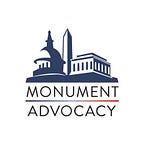The New Power of the CBC
By: Lawrence Duncan III and Noelle Jones
The Congressional Black Caucus (“CBC”) has long been recognized as the “conscience of the Congress.” But the CBC’s stature as a major powerbroker will reach new heights in the 117th Congress. Founded in 1971 with just 13 members, today the CBC stands at a record number of 57 members as it embarks on its 50th anniversary in 2021.
If business and industry leaders truly want to be successful advocates for their legislative priorities this Congress, they would be wise to build meaningful relationships with the CBC, whose membership has some of the most powerful members in Congress, including:
▪ House Majority Whip Jim Clyburn (D-SC)
▪ House Democratic Caucus Chairman Hakeem Jeffries (D-NY)
▪ House Financial Services Committee chairwoman Maxine Waters (D-CA)
▪ House Homeland Security Committee Chairman Bennie Thompson (D-MS)
▪ House Education and Labor Committee Chairman Bobby Scott (D-VA)
▪ House Science, Space and Technology Committee Chairwoman Eddie Bernice Johnson (D-TX)
▪ House Foreign Affairs Committee Chairman Gregory Meeks (D-NY)
▪ House Agriculture Committee Chairman David Scott (D-GA)
▪ CBC Chairwoman Joyce Beatty (D-OH)
These CBC leaders will be at the forefront of addressing our country’s most critical issues from the COVID-19 pandemic and economic fallout to racial justice reforms that are also a priority of the incoming Biden-Harris Administration. With key positions in the Congressional Leadership and as chairs of major committees, CBC members will have new power to craft policies affecting the global economy, homeland security, financial markets, foreign affairs, agriculture, and many other areas.
Covid-19 is clearly a top issue of concern for CBC members and President-elect Biden. According to the Covid Racial Data Tracker, nearly 55,000 African Americans have died from COVID-19, which equates to roughly 17% of all cases. Some of the key areas that are vitally important to the CBC are vaccine distribution, messaging to communities of color, delivery of aid to communities hit hardest by the virus, Covid-19 testing, and economic assistance.
Another top priority for the CBC is racial justice and equity. In 2020, we saw protests across the country in response to the tragic deaths of Ahmaud Arbery, Breonna Taylor, and George Floyd. The CBC responded by introducing the “George Floyd Justice in Policing Act.” The bill proposed a number of key changes to policing practices, including limiting qualified immunity and creating a national registry to track complaints and records related to police misconduct, among other things.
The creation of a new House Select Committee on Economic Disparity and Fairness in Growth will provide further opportunities to examine these critical issues across broad sectors of the economy, with CBC members leading the way.
Corporate America has responded to the challenge of racial justice and equity with record levels of contributions to social justice organizations and pledges to improve hiring and diversity efforts. But more work remains. CBC members want to see more accountability, and civil rights groups also will continue to press companies for tangible evidence of change. Congress is monitoring this as well. For example, during the 116th Congress, the House Financial Services Committee, led by chairwoman Maxine Waters (D-CA), created a Diversity and Inclusion Subcommittee. Earlier in 2020, the subcommittee released a staff report highlighting diversity and inclusion data from the nation’s largest banks. Other Congressional committees led by CBC members will likely address diversity and inclusion and encourage companies to take further steps. In addition, CBC members will likely push for more diversity and inclusion in federal contracting and more support for minority-owned businesses.
Make no mistake about it. The CBC will have unprecedented power in the 117th Congress to shape important legislation and policies affecting America at home and abroad. Business and industry leaders should recognize this new reality and factor the CBC into their strategic thinking, and ultimately, their bottom line.
Lawrence Duncan III is a Partner at Monument Advocacy. Noelle Jones is a Senior Director, Government Relations and Public Affairs at Monument Advocacy.
